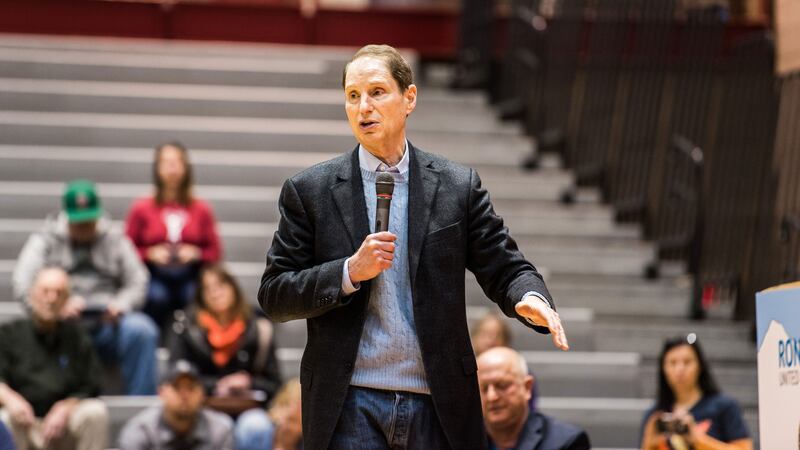The laborious route to confirming a replacement for the Ninth Circuit Court of Appeals Judge Diarmuid O'Scannlain remains bottled up in a dispute between President Donald Trump's administration and U.S. Sens. Ron Wyden (D-Ore.) and Jeff Merkley (D-Ore.).
On Sept. 7, Trump nominated Assistant U.S. Attorney Ryan Bounds to replace O'Scannlain, a move that Wyden and Merkley opposed.
The senators, both Democrats, took issue with the process that led to Bounds' nomination, saying that the Trump administration had ignored a longstanding tradition of senators leading a process that would result in their providing the White House with candidates acceptable to them.
"We have a long a long history of organizing a committee charged with thoroughly vetting applicants from the Oregon legal community," the senators wrote in a Sept. 7 letter to White House counsel Donald McGahn.
Left unspoken were the political considerations: Bounds, 44, a member of the Federalist Society, is likely to bring a conservative voice to the nation's most liberal federal circuit for the next three or four decades. He's also the brother of the chief of staff to Oregon's only Republican congressman, U.S. Rep. Greg Walden (R-Ore.).
That senators' assertion that Bounds' nomination conflicted with a long-established committee process is at odds with what happened the last time an Oregonian was nominated to Ninth Circuit Court of Appeals.
In the questionnaire she prepared for her April 1998 Senate confirmation hearing, then-Oregon Supreme Court Justice Susan Graber, a nominee for the Ninth Circuit ,said she'd simply applied for the position.
"There is no selection commission in my jurisdiction to recommend candidates for nomination to the United States Court of Appeals," Graber said.
Graber's characterization would seem to contradict the way Wyden and Merkley have described the judicial selection process.
They disagree, pointing to the process they've used to select federal district court judges. Such vacancies arise more frequently than appellate court positions like O'Scannlain's.
"For upwards of two decades, Sen. Wyden is proud to have grown a formal selection process that ensures nominees meet all the standards for lifetime judicial appointments free from any taint of cronyism or partisan favoritism," said Wyden's spokesman Hank Stern in a statement. "The current selection process is within this longstanding tradition of independent vetting by a committee of Oregonians working toward the nonpartisan objective of finding strong candidates for judicial vacancies. He is confident this committee will achieve this goal."
Merkley's spokeswoman, Sara Hottman, said the process has changed since Graber's confirmation.
"Sen. Merkley has relied on the committee to vet candidates during his time as a U.S. Senator," Hottman said. "19 years [since Graber's hearing] is a long time; nearly two decades certainly qualifies as a long history of committee vetting."
This week, Sen. Diane Feinstein (D-Calif), the senior Democrat on the Senate Judiciary Committee, the panel in front of which Trump's judicial appointees will appear, bolstered the case for Wyden and Merkley's attempt to block Bounds' nomination.
On Sept. 25, Feinstein wrote a nine-page memo detailing the recent history of the "blue slip" process, which allows senators to approve or block judicial nominees from their home states.
"Senate Republicans and conservative interest groups are misrepresenting decades of history in an attempt to eliminate the blue slip, which requires both home state senators to sign off on judicial nominees before they can advance," Feinstein wrote. "The last time a judge was confirmed without two blue slips was 1989. Only a handful of judges have been confirmed without two blue slips in the past 100 years."
